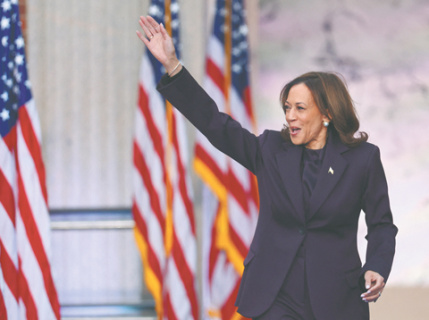
In a surprising move that has sent ripples through American politics, Kamala Harris, Donald Trump’s rival in the last presidential election, has announced she will not run for governor of California. The decision stunned observers, as polls indicated she was a clear frontrunner for a post that seemed practically hers for the taking in her home state. While some commentators speculate she is clearing the way for a 2028 presidential bid, a more prevalent analysis suggests this is a strategic retreat, allowing her and the Democratic Party to recover from a crisis she is seen as having partly precipitated.
In a video message, Harris stated that after six months of deliberation, she concluded her immediate future would “not be in elected office.” Instead, she plans to write a book about the 2024 election, titled “107 Days,” and embark on a national tour. “I look forward to listening to the American people, helping to find Democrats who will fight fearlessly,” she said, alluding to the 2026 midterm elections, while leaving the door open about her own long-term ambitions for 2028.
Her decision is widely interpreted as a calculated step back from the political limelight. A gubernatorial campaign would have kept her in the national conversation, potentially hindering a Democratic Party still grappling with its 2024 defeat. Within the party, significant blame for the loss has been placed on the ticket of Joe Biden, for not stepping aside sooner, and Harris, for what was perceived as an inability to effectively challenge Trump. By temporarily disappearing from the political stage, she may be giving the party space to heal and find its footing.
Adding to the complexity of her decision is an ongoing Republican-led congressional investigation that could prove politically fatal. The probe is examining whether President Biden was medically unfit to perform his duties in the months leading up to the election. If investigators conclude he was incapacitated, the law dictated that Harris, as Vice President, should have assumed his powers. The fact that this did not happen could be interpreted as a damning vote of no confidence from Biden’s own inner circle, a narrative that would severely damage her credibility for any future leadership role.
This tactical pause, while not ruling out a 2028 presidential run, is seen by many as a wise maneuver. It allows the Democratic Party to search for new leadership to challenge the Republican heir apparent, potentially J.D. Vance, who has already been floated as a successor to Trump. However, if the party fails to produce a compelling new candidate by 2028, analysts believe the Democrats may well turn back to Harris, banking on a familiar, experienced figure to lead the charge once more.
